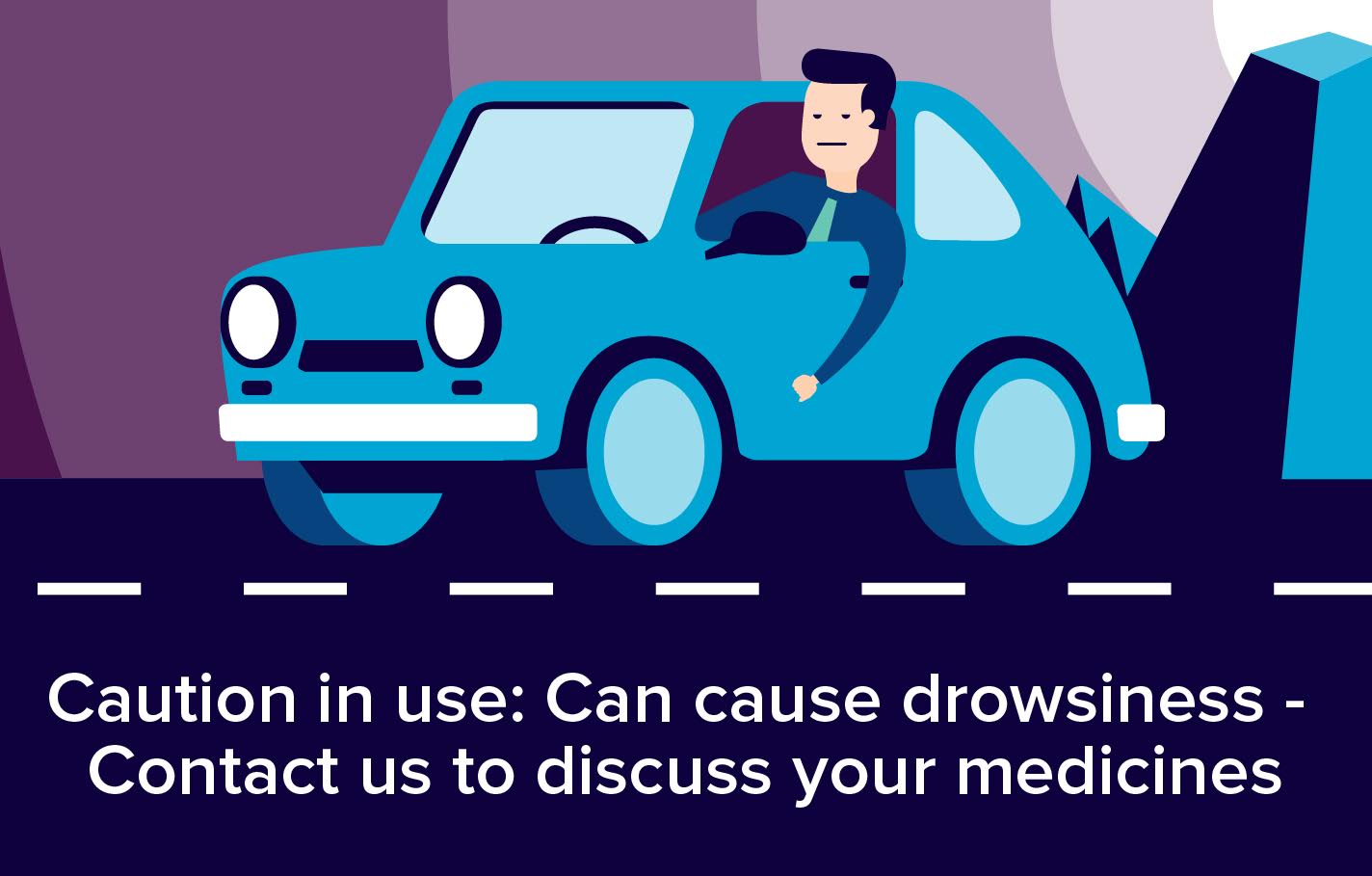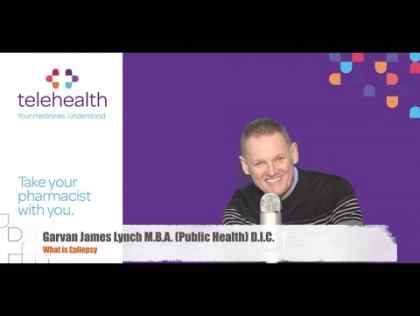The active ingredient of Tegretol is carbamazepine. Carbamazepine is one of a group of medicines called anticonvulsants. It is used to treat epilepsy. Carbamazepine is also used to treat a painful condition of the face (trigeminal neuralgia) and also may be used to help prevent mood swings.

Why have I been prescribed Tegretol?
- The active ingredient of Tegretol is carbamazepine.
- Carbamazepine is one of a group of medicines called anticonvulsants.
- It is used to treat epilepsy.
- Carbamazepine is also used to treat a painful condition of the face (trigeminal neuralgia) and also may be used to help prevent mood swings.
How does it work?
It works by decreasing the excitability of nerve cells and preventing them firing inappropriately.
When and how do I take it?
Tegretol is always (except possibly on the first day) given in divided daily doses, i.e. 2 to 4 times a day, depending on your medical condition.
- Take Tegretol during or after a meal.
- Swallow the tablets with some liquid; if necessary, the tablets may be broken in half along the line.
Do not drink grapefruit juice or eat grapefruit since this can increase the effect of Tegretol. Other juices, like orange juice or apple juice, do not have this effect.
What’s the dose?
Treatment of epilepsy is usually started at 100 to 200 mg once or twice a day in adults. The dosage is then gradually increased to 800 to 1200mg a day ( i.e. 40–60 mls oral suspension), divided in 2 or 3 intakes.
Treatment in children is usually started at 100 to 200 mg day (based on 10 to 20 mg/kg body weight daily) and kept at 400 to 800 mg a day. Adolescents may receive between 600 and 1000 mg a day.
Tegretol is not suitable for children under 5 years.
For trigeminal neuralgia the starting dosage of 200 to 400 mg a day is slowly raised until there is no pain usually 200 mg 3 to 4 times a day.
For elderly patients a lower starting dose, 100 mg twice a day, is recommended.
For mood disorders the usual dosage is 400 to 600 mg a day.
For alcohol withdrawal symptoms the usual dosage is 600–800 mg a day.
Could it interact with other tablets?
If you are already taking any of the following medicines, tell your doctor. It may affect your dose of Tegretol or increase the risk of side effects:
- Phenobarbital, Phenytoin, Primidone, Valproic Acid, Felbamate, Ethosuximide, Tiagabine, Lamotrigine, Flunarizine (other antiepileptics)
- Antibiotics include Rifampicin, Josamycin, Clarithromycin. Troleandromycin, Erythromycin, Isoniazid, Doxycycline
- Itraconazole, Ketoconazole, Voriconazole, Fluconazole, Caspofungin (treatment of fungal infections)
- Ritonavir, Indinavir (anti-viral medicine)
- Praziquantel (to treat worm infections
- medicine for heart problems e.g. Verapamil, Digoxin, Diltiazem, Quinidine, Hydroquinidine, or for high blood pressure eg. Dihydropyridines (such as Felodipine), Propranolol
- Acetazolamide (to treat glaucoma)
- Hydrochlorothiazide, Furosemide (diuretics or 'water tablets')
- Dextropropoxyphene/Propoxyphene, Methadone , Tramadol, Fentanyl, Paracetamol, Phenazone (painkillers)
- Midazolam (sedative)
- Fluoxetine, Viloxazine, Desipramine, Imipramine, Fluvoxamine, Trazadone, Nortriptyline, Amitriptyline, Clomipramine (antidepressants)
- Clonazepam, Ethosuximide, Alprazolam, Clobazam (medicines for anxiety)
- Haloperidol, Bromperidol, Lithium, Olanzapine, Quetiapine, Risperidone, Clozapine (to treat mental illness)
- Nicotinamide in high doses (vitamin of the B group)
- Cimetidine (for the treatment of ulcers)
- Theophylline (for asthma)
- Corticosteroids (eg. Prednisolone, Dexamethasone)
- Ciclosporin, Tacrolimus, Sirolimus (immunosuppressants)
- Cisplatin, Doxorubicin, Procarbazine (anti-cancer medicine)
- Anticoagulant drugs such as Warfarin, Phenprocoumon and Dicumarol
- Muscle relaxants (e.g. Pancuronium)
- Isotretinoin (to treat acne)
- Danazol (treatment for endometriosis)
- contraceptive "pill": It is advised to use another form of contraception.
- Other medicines containing oestrogens/progestogens, HRT treatment
- Terfenadine, Loratadine (for allergies)
- Bupropion (anti-smoking treatment)
- Methylphenidate (to treat ADH disorder)
- The herbal remedy St. Johns Wort (Hypericum perforatum) should not be taken at the same time as this medicine. If you already take St. Johns Wort, consult your doctor before stopping the St. John's Wort preparations.
Herbal products should also only be taken after talking with your doctor.
What are the possible risks or side-effects?
Like most medicines, Tegretol can have side effects. Side effects aremore common at the start of treatment, but usually disappear after a few days or when the dose is adjusted to be right for you.
Common effects seen in less than 1 in 10 patients but more than 1 in 100, include:
- feeling dizzy
- feeling tired or drowsy
- suffering from skin rashes and a loss of co-ordination
Tell your doctor straight away if you:
- notice a skin rash or a severe skin reaction
- suffer from a persistent sore throat, fever or both
- feel feverish
- suffer from mouth ulcers or notice unusual bruising or bleeding of your skin
- get a throbbing headache
- stiff neck and become sensitive to bright light
- have difficulty breathing
- have a combination of symptoms including painful joints or muscles and a rash
These are rare effects, seen in less than 1 in 1000 patients but more than 1 in 10,000.
Very common side effects (affecting more than or equal to 1 in 10 patients):
- loss of muscle coordination
- allergic skin reactions
Common side effects (affecting less than 1 in 10 patients):
- swelling of the ankles, feet or lower legs (oedema)
- changes in behaviour
- confusion
- weakness
- increase in seizures (fits)
- blurred vision
- double vision
- itching with redness and swelling of the eye (conjunctivis)
- feeling pressure/pain in the eye (signs of increased pressure in the eye)
- trembling
- uncontrolled body movements
- muscle spasms
- uncontrolled eye movements
Uncommon effects, seen in less than 1 in 100 patients but more than 1 in 1000, include:
- confusion and agitation in elderly patients
- depression
- being aggressive or other mood changes
- difficulty thinking and hallucinations
- headache
- lack of drive
- ringing in the ears
- loss of appetite
- dry mouth
- feeling or being sick
- allergic skin reactions
Can I drink Alcohol while taking it?
This medicine interacts with alcohol and concomitant use should be avoided.
What if I’m pregnant/breastfeeding?
- If you are planning to become pregnant, talk to your doctor first.
- If you are pregnant and need to take an anticonvulsant, you are likely to be taking only one anticonvulsant.
- Your doctor will monitor you and your unborn child closely.
- Breast feeding while taking Tegretol is not recommended. If you do breast feed and you take Tegretol, tell your doctor straight away if your child becomes very drowsy or is slow to put on weight.
If you have any more questions please ask your Pharmacist.
Remember to keep all medicines out of reach of children
Please Note: We have made every effort to ensure that the content of this information sheet is correct at time of publish, but remember that information about drugs may change. This sheet does not list all the uses and side-effects associated with this drug. For full details please see the drug information leaflet which comes with your medicine. Your doctor will assess your medical circumstances and draw your attention to any information or side-effects which may be relevant in your particular case.
References:
https://en.wikipedia.org/wiki/Carbamazepine
http://www.drugs.com/tegretol.html
http://www.rxlist.com/tegretol-drug.htm
https://www.medicines.org.uk/emc/medicine/1328
http://www.fda.gov/downloads/Drugs/DrugSafety/UCM246796.pdf
https://www.pharma.us.novartis.com/product/pi/pdf/tegretol.pdf


